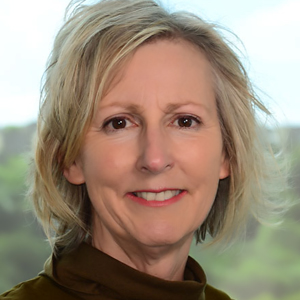
Fiona Hesselden
Environmental Sustainability researcher
Environmental Sustainability researcher Fiona Hesselden stresses the need for change and global acceptance as the COP24 – 24th Conference of the Parties to the United Nations Framework Convention on Climate Change – concludes in Poland.
Die Another Day….
“Three years ago, at the beginning of the 2015 Paris Climate Talks (COP 21), I wrote a blog titled Tomorrow Never Dies – or does it? commenting on a speech given by Prince Charles at the opening of the talks urging world leaders to consider the needs of the youngest generation in the face of climate change as “none of us has the right to assume that for our today, they should give up their tomorrow”. This principal of inter-generational equity lies at the heart of the moral argument for climate action.
In 2015, discussions went to the wire with a last minute push by small island nations, the EU and others getting a crucial commitment to not just keep global temperatures “well below” 2’C but to ‘endeavour to limit them even more to 1.5’C’. The Paris Agreement was secured, but the really hard work was about to begin – how to achieve this in practice?
Fast forward three years to the 2018 Climate Talks (COP24) held in Katowice, Poland, which have just concluded, having taken part in a very different geo-political landscape: nationalism on the rise, multilateralism out of fashion and politicians and politics apparently dominated by individual concerns and ambitions. And the emergence at these talks of a coalition of conceit – Russia, US, Saudi Arabia and Kuwait – all seemingly undeterred by the evidence and desperate to hang on to their dirty fossil fuels despite overwhelming acceptance by the other 192 countries present of the findings of the IPCC report released in October that warned that keeping the Earth’s temperature rise to 1.5 degrees C would need “unprecedented changes” in every aspect of society.
Against these odds, there was welcome news on Saturday that agreement had been reached on the ‘rulebook’ of The Paris Agreement – how countries should account for – measure and report on – their greenhouse gas emissions. This result is in part a testament to the engagement and leadership of people such as the former President of the Maldives, Mohamed Nasheed, now leading his countries climate negotiations, the unscheduled intervention of UN Secretary General Antonio Guterres warning delegates that these talks were our ‘last best chance to stop runaway climate change… “it would not only be immoral, it would be suicidal” not to reach an agreement and the ongoing actions and protests by civil society organisations.
So, it would seem our leaders managed to collectively step back from the brink – for now. But two significant issues remain. Brazil refused to sign up to rules for regulating carbon markets, lobbying for weaker ones with a high risk of double counting; this significant political football has now been kicked over to next year.
Secondly, individual countries’ national targets remain inadequate to meet the desired minimum of 1.5’C rise in temperature. If these are not changed, we are likely to see 3’C or more of warming. Which the science tells us will be disastrous. MUCH more ambition is needed at this state level by 2020. Today, we live but, I fear, only to die another day. And then, even James Bond won’t be enough to save us or the planet.”
Consumer behaviour
Browse all our blogs related to Consumer behaviour.
Environment
Browse all our blogs related to Environment.
Politics
Browse all our blogs related to Politics.
Society
Browse all our blogs related to Society.
